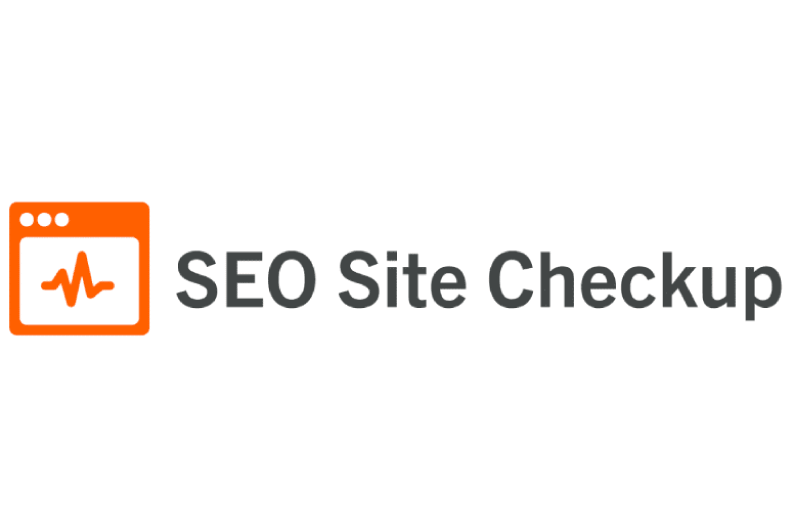
Are you fed up with putting content on your website and not getting a higher rank?
Have you heard about the website technical audit tool that monitors and adapts to the constantly shifting SERP algorithm?
Compared to manually conducting an audit, a website technical audit tool can reduce auditing time from hours to minutes. A website technical audit tool is, without a doubt, essential, regardless of how skilled you are at SEO.
You may have observed that Google’s algorithm is becoming more complex. It’s more complicated than simply a game of keywords now. Google’s ranking is based on more than 200 factors at the moment. That’s not all, though. In reality, Google makes around three thousand changes to its search algorithm every year. That’s the equivalent of around nine adjustments daily.
Auditing tools for search engine optimization (SEO) allow you to compare your site’s efficiency to that of industry standards. You can improve your site’s visibility in search engines, attract more quality inbound links, enhance the user experience, and eventually bring in more business.
READ MORE:-Top 7 Creative Brand Naming Companies in India
What is Technical Audit?
A technical SEO audit evaluates a website’s technical aspects for SEO best practices. SEO has many “technical” parts, such as HTML elements, the right meta tags, website code, JavaScript, and the right website extensions.
This means the technical parts of your site that have to do with how search engines like Google and Bing rank your site. A simple Excel file can be used to make the checklist for the audit.
SEO has a lot of different parts, such as the content for on-page SEO best practices, the keyword strategy, the content, and more. However, a website technical audit tool is vital since it involves inspecting your website’s substructure for more highly complex flaws that you may be unaware of.
An audit checklist could involve going through our guide step by step and writing down any problems you find in an Excel or Word file. By keeping track of the problems you find, you can set them aside and deal with them as they arise. This will ensure that your website is optimized for search engines as much as possible.
Everything About Website Technical Audit Tools: Top 8 Picks
SEO website audit tools save web editors and developers from manually checking site optimization, loading speed, conversion rate, and responsiveness.
Use these 15 SEO tools to learn how to audit your website and improve it.

1- Google Search Console:
Google Search Console, formerly Google Webmaster Tools, is a website technical audit tool that provides a wide range of search performance indicators straight from the source. So much so that you can look at data from more than 16 months ago and find SEO problems.
Features:
- Tests and keeps track of your AMP pages.
- Crawl stats come straight from Googlebot.
- It shows pages with 404 or 500 errors and pages that failed to be indexed.
- Offers a tool for analyzing the performance of your content keywords.
- This website technical audit tool helps you determine how well your keywords are doing.
- Shows all the pages that Google has already looked at.
- Custom audit reports are made.
- Send you an email as soon as Google finds problems on your site.
- Check the coverage of your index.
- Gives you information about the search terms that bring people to your site.
Pricing:
Google’s Search Console is available to everyone for no cost at all.

2- PageSpeed Insights:
PageSpeed Insights is another best and budget-friendly website technical audit tool. It’s made to test your URLs and give them scores based on how well they work on desktop computers and mobile phones.
To be more specific, PageSpeed Insights looks at how fast your pages load and how users interact with a web development service. So, it lists all the problems and puts them into three groups: Audits Passed, Diagnostics, and Opportunities.
Features:
- Examines the page’s First Contentful Paint, Total Blocking Time, Largest Contentful Paint, Time to Interactive, Speed Index, and Cumulative Layout Shift metrics.
- This website technical audit tool gives tips on how to speed up the loading of your pages.
- Shows how well a page works on both mobile and desktop devices.
- Enhance the overall functionality of your webpage.
Pricing:
SEO audit tool PageSpeed Insights is free.

3- Google Schema Markup Validator:
The Google Schema Markup Validator (formerly known as the Google Structured Data Testing Tool) is a website technical audit tool for checking your site’s schema markup.
For your information, schema markup is a type of structured data or code that tells Google what your site is about. So, if you run your site through the website technical audit Google Structured Data Testing Tool, you can find out if any code mistakes might make it hard for Google to crawl, organize, and index your content.
Features:
- Give a preview of the structured data on your site.
- Shows exactly how many schemas are on the page/URL.
- Details what schema errors are and how to fix them.
Pricing:
Everyone can use the Google Schema Markup Validator tool for free.

4- SEO Site Checkup
Over 5,000 webmasters use SEO Site Checkup to examine backlinks, create sitemaps, spy on rivals, monitor keywords, track regional performance, and audit typical SEO concerns.
- Identifies common SEO issues.
- Gives you tutorials on how to fix every SEO problem.
- Provide an overview of how fast your site loads and how long it’s been up.
- Think about how your site works on mobile devices, how quickly it loads, and how safe it is.
- Convey information about the number and quality of backlinks to your website.
- Automatically keeps track of changes in more than 30 SEO variables that happen every week.
Pricing:
The price for SEO Site Cleanup begins at $29.95 per month for up to three sites.
5- Google SERP Snippet Optimization Tool
Google SERP Snippet Optimization Tool (formerly SERPsim) is a SERP simulator offered by a growth agency called Higher Visibility. It’s a website technical audit tool that makes Google’s search engine results pages look like what they look like (SERPs). You only need to type in the page or post’s title, meta description, and URL to get a result.
That means you can see a preview of how your page or post will look in Google’s search results. So, you can use this information to improve your page titles and metadata.
Features:
- You can save a picture of your SERP preview.
- Can copy information from the Google snippet tool to the clipboard.
- Helps you share your SERP projects with a coworker or client.
- Get the titles and meta descriptions of pages that already exist.
- Gets an existing URL’s title and meta description.
Pricing:
This website technical audit tool is a free SERP snippet generator.

6- Moz
Even if you’re new to SEO, this website technical audit tool can help you get started. It has charts and audit results that are easy to understand. Also, it includes both on-page audits and technical audits, so you can do your whole audit with this one tool.
It crawls your website to find common SEO problems like duplicate content, broken links, redirects, HTTP status codes, etc. It also sorts the problems by how bad they are and what kind they are.
Features:
- Make charts and reports that are colorful and easy to understand.
- With its on-page optimization tool, you can get a Page Optimization Score based on keywords.
- Do a thorough analysis of the links.
- Check your site for technical, on-page, and off-page SEO problems.
Pricing:
Paid plans start at $99 per month and come with a 30-day free trial.

7- Semrush:
Semrush is the best website technical audit tool that can do everything. When auditing a website, it does more than 130 checks for page speed, backlink profile, and security.
Based on your target audience and what they search for, the reports will tell you exactly what you need to do to get your site to rank higher. Aside from the technical tweaks, Semrush audits will also give your ideas for building links that you can use.
Features:
- Check over 130 audit metrics, including on-page SEO, off-page SEO, and technical SEO problems.
- Share SEO roadmaps with your stakeholders with just an HTML link. You could also send the list of problems to an Excel sheet.
- Make a white-label PDF of the issues that you can customize.
- Plan your audits and make them fit your needs.
- Put the problems in order of importance to solve problems that need to be fixed right away.
- With the Daily Performance Tracker, you can see how your website is doing daily.
- Find link-building opportunities that have been missed.
- Get detailed audit reports that list problems with markup, security, internal links, etc.
- Do keyword research, look at traffic, and figure out where keywords aren’t being used.
Pricing:
Paid plans start at about $120 per month, and you can try it for free for 7 days. Semrush also has website technical audit free tools.
8- JetOctopus:
JetOctopus is a website technical audit tool that focuses on making your site more visible and indexed, increasing organic traffic, and fixing SEO mistakes.
Features:
- Find out if Googlebot can crawl a website and fix it if it can’t.
- Find the fake bots that are just scraping your website and putting a strain on your server.
- Optimize the site’s structure, fix duplicates, improve internal links, and check the indexation tags.
- With GSC Insight Extractor, you can get better analysis and reports.
- Enterprise customers can crawl and keep logs without limits.
- You integrate Google Search Console, Google Analytics, and backlinks for free.
Pricing:
Crawl volume determines plan pricing, which begins at $176 per month. The website technical audit tool also comes with a free 7-day trial.
The Bottom Line:
If you add one or more of these website technical audit tools to an advanced analytics tool for marketing, you’ll be able to look at your website more closely and stand out from your competitors.
Remember that none of these tools is perfect and that you still need the proper Edinburgh SEO services team and the correct actions for your online company to succeed.
People also ask
Which tools are used in auditing websites?
There are many tools that can be used in auditing a website. Some of the most common ones include:
- Web analytics tools: These tools allow you to track and analyze traffic to your website. Examples include Google Analytics, Adobe Analytics, and Piwik.
- SEO audit tools: These tools help you identify and fix issues with your website that may be impacting its search engine rankings. Examples include SEMrush, Ahrefs, and Moz.
- Security audit tools: These tools can help you identify security vulnerabilities on your website and provide recommendations for how to fix them. Examples include Qualys SSL Labs, Security Headers, and Sucuri Site check.
- Performance audit tools: These tools can help you identify issues with the speed and performance of your website. Examples include GTmetrix, Pingdom, and WebPageTest.
- Accessibility audit tools: These tools can help you ensure that your website is accessible to people with disabilities. Examples include WAVE, aXe, and Lighthouse.
- Manual testing: In addition to using automated tools, it’s also important to manually test your website to ensure that it is functioning correctly and meeting your business goals. This may include user testing, usability testing, and other types of manual testing.
How do you technically audit a website?
A technical website audit is a comprehensive evaluation of a website’s technical aspects, including its architecture, infrastructure, and codebase. Here are some steps you can follow to conduct a technical audit of a website:
- Crawl the website: Use a tool like Screaming Frog or DeepCrawl to crawl the website and identify all of its pages, resources, and technical issues.
- Analyze the website’s architecture: Look at the website’s navigation, taxonomy, and URL structure to ensure that it is logical and easy to use.
- Evaluate the website’s infrastructure: Check that the website is hosted on a reliable server and has appropriate security measures in place.
- Analyze the website’s codebase: Look for issues with the website’s HTML, CSS, and JavaScript code, such as outdated technologies, coding errors, and compatibility issues.
- Test the website’s performance: Use tools like GTmetrix, Pingdom, and WebPageTest to test the website’s speed and performance.
- Check for mobile compatibility: Use tools like Google’s Mobile-Friendly Test and Responsive Design Checker to ensure that the website is optimized for mobile devices.
- Check for security vulnerabilities: Use tools like Qualys SSL Labs, Security Headers, and Sucuri Site check to identify any security vulnerabilities on the website.
- Review the website’s content: Check that the website’s content is accurate, relevant, and of high quality.
- Analyze the website’s analytics: Use tools like Google Analytics and Adobe Analytics to review the website’s traffic and user behavior.
- Create a report: After completing the audit, create a report that summarizes your findings and recommendations for improving the website.
Which is a free website audit tool?
There are many free website audit tools available that can help you identify and fix issues with your website. Here are a few examples:
- Google Analytics: This is a free web analytics tool that provides detailed insights into your website’s traffic, user behavior, and performance.
- GTmetrix: This tool analyzes your website’s speed and performance, and provides recommendations for how to improve it.
- Lighthouse: This is an open-source tool developed by Google that can be used to audit the performance, accessibility and SEO of a website.
- W3C Validator: This tool checks your website’s HTML and CSS code for errors and compliance with web standards.
- SEMrush: This is a paid tool that offers a free website audit feature, which analyzes your website’s SEO, performance, and security.
- Ahrefs: This is a paid tool that offers a free website audit feature, which analyzes your website’s backlinks, traffic, and keyword rankings.
- Moz: This is a paid tool that offers a free website audit feature, which analyzes your website’s SEO and provides recommendations for improvement.
- WAVE: This is a free tool that can be used to audit the accessibility of a website.
What is a Technical website audit?
A technical website audit is a comprehensive evaluation of a website’s technical aspects, including its architecture, infrastructure, and codebase. The goal of a technical website audit is to identify and fix any issues that may be impacting the performance, security, or accessibility of the website.
During a technical website audit, the website’s architecture, infrastructure, and codebase are all analyzed to ensure that they are up-to-date, efficient, and effective. The website’s performance, security, and mobile compatibility are also tested, and any issues that are identified are documented and recommendations are made for how to fix them.
A technical website audit can help improve the overall user experience of a website, as well as its search engine rankings and security. It is an important step in maintaining and improving the performance of a website.
